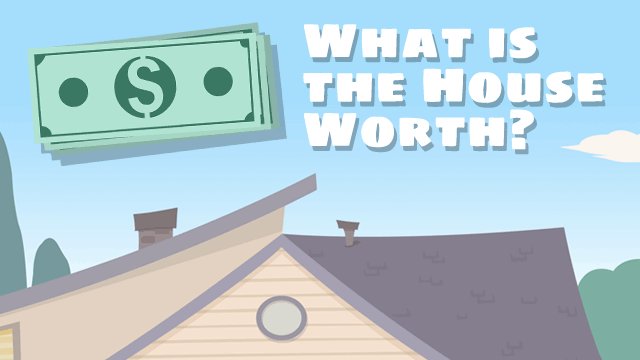When Your Dream Home Gets Appraised
May 19, 2025
Why does the FHA require certain property repairs before insuring a loan?
The FHA mandates specific property repairs primarily to protect borrowers from purchasing homes that are unsafe or might require substantial, unforeseen repairs shortly after they move in. This also helps protect the FHA's mortgage insurance fund from undue risk associated with properties that don't meet these basic living standards.
What aspects of a property does an FHA appraiser typically inspect?
During an FHA appraisal, the appraiser conducts a thorough visual inspection of the property. This includes its overall condition, the site itself, the exterior and foundation, the roof's condition, the interior spaces, and the functionality of essential systems such as plumbing, electrical, and heating. The appraiser specifically looks for any potential health or safety hazards, guided by official HUD handbooks.
What are some common property issues that might trigger FHA-required repairs?
Common issues that often lead to FHA-required repairs include significant structural problems like foundation cracks or settlement; roofing issues such as active leaks or a roof nearing the end of its life; safety hazards like exposed electrical wiring or an inadequate heating system; problems with plumbing or sanitation, including unsafe water supply; the presence of chipping or peeling lead-based paint in homes built before 1978.
What does it signify if an FHA appraisal report states a property is "subject to" repairs?
If an FHA appraisal report indicates that a property is "subject to" repairs, it means that the identified deficiencies must be corrected and brought up to FHA standards before the Federal Housing Administration will insure the mortgage. Finalizing the home purchase is contingent upon these repairs being satisfactorily completed.
When FHA-required repairs are identified, what is generally the most straightforward way to address them?
Often, the most direct path to resolving FHA-required repairs is for the seller of the property to agree to complete and pay for all the repairs specified by the FHA appraiser before the scheduled closing date. Once the work is done, a re-inspection is typically needed to confirm that the repairs meet FHA standards.
How are decisions about responsibility and payment for FHA-required repairs usually made?
Decisions regarding who is responsible for FHA-required repairs and who pays for them are primarily governed by the terms negotiated in the sales contract between the buyer and seller. This contract often outlines how such repair issues will be handled and may specify a limit to the seller's financial contribution towards these repairs. Ultimately, negotiation between the parties is key.
Are borrowers ever allowed to perform FHA-required repairs themselves?
It is highly uncommon and quite restricted for borrowers to perform FHA-mandated repairs themselves. This is especially true for repairs related to safety or structural elements, as FHA guidelines typically emphasize the need for professional workmanship and adherence to specific standards.
Does the FHA determine which party is responsible for paying for required repairs?
No, the Federal Housing Administration does not dictate who must pay for the FHA-required repairs. This is a matter to be negotiated between the buyer and the seller, and the resolution is customarily governed by the provisions outlined in their legally binding sales agreement.
Who typically bears the cost of FHA-mandated repairs in a home sale?
Frequently, sellers agree to cover the costs of FHA-mandated repairs as a way to facilitate the sale of their property. However, if a buyer utilizes an FHA 203(k) loan, the cost of the necessary repairs is incorporated into their mortgage amount, meaning the buyer ultimately assumes responsibility for repaying those costs. The final allocation of costs is usually the result of negotiation between the buyer and seller.
Is a Contingency Clause Needed?
An appraisal contingency clause within a sales contract may, when present, grants the buyer the right to terminate the agreement and receive a refund of their earnest money deposit if the property appraisal mandates repairs as a condition for loan approval, and if the buyer and seller cannot reach a mutual agreement on how those repairs will be managed and financed.

FHA Loan Articles
February 27, 2025 Buying your first home can feel overwhelming, especially when you start hearing terms like "subprime mortgages" and "FHA loans." Understanding these options is crucial for making the right decision. Subprime mortgages are designed for borrowers with less-than-perfect credit histories. This might include past issues like late payments, loan defaults, or even bankruptcy...
February 26, 2025Buying your first home can be exciting, but the mortgage process often throws a curveball of unfamiliar terms. Here are answers to common questions first-time homebuyers have about mortgage jargon and terms.
February 18, 2025Mortgages typically require mortgage insurance and homeowners insurance. They are both key parts of your home loan but they serve very different functions. Do you know the differences between the two? Find out how ready you are to begin the process of buying your new house.
February 17, 2025The federal government backs FHA home loans, which allows participating FHA lenders to offer lower down payment options and more lenient credit requirements. How much do you really know about your FHA home loan options and how they compare to other mortgage choices?
February 13, 2025For many college graduates, student loan debt is a concern. A common question is how this debt impacts the ability to buy a home. This Q&A explores the relationship between student loans and FHA loan approvals. How much do you know about how your student loan debt affects your ability to be approved for a mortgage?







